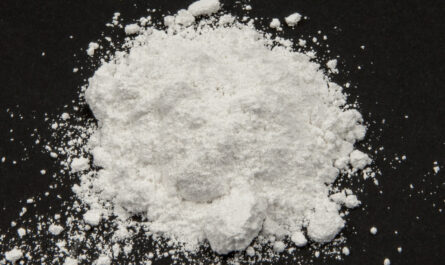What are Industrial Enzymes?
Industrial catalyst are biological catalysts produced through fermentation of microorganisms like bacteria and fungi. They are used in various industrial processes like food & beverage manufacturing, detergents, textiles, animal feed and more. Some key types of industrial catalyst include proteases, carbohydrases, lipases, polymerases and nucleases.
Uses of Industrial Enzymes in Food Industry
The food industry is one of the largest consumers of Industrial Enzymes catalyst. They are used at various stages of food processing like production, manufacturing and packaging. Some common applications include:
Dairy Processing: Enzymes like rennet, lactase and lipase are used in cheese making, yogurt production and butter/cream manufacturing. Rennet is used to curdle milk during cheese making.
Brewer’s Yeast and Beer Production: Amylases are added during malting of barley to convert starches into fermentable sugars. Proteases and cellulases help break down plant materials.
Wheat and Baking: Amylases, glucose oxidase and lipoxygenase are used in bread making to soften the dough and improve texture, flavor and shelf life.
Fruit and Vegetable Processing: Pectinases are used for fruit juice extraction and clarification. They break down pectin in fruits to release the juice. Cellulases help extract oils from citrus peels.
Starch Processing: Amylases are important in producing modified starches, high fructose corn syrup and other sugar syrups from corn, tapioca and wheat.
Uses of Industrial catalyst in Detergents Industry
Enzymes are a crucial ingredient in most modern laundry detergents. Some important enzyme applications in detergents include:
Proteases digest protein-based stains like food, blood, grass and more by breaking the peptide bonds. This helps remove stubborn stains.
Amylases work similarly by breaking down carbohydrate-based stains like starch. They are common in dishwasher detergents.
Lipases are added to remove oily stains from clothes, dishes and surfaces. They cut through fatty, greasy residue.
Cellulases aid in removing tough cotton fibres during laundering for a whitening effect. They also help dissolve pulp deposits in pipes and drains.
The inclusion of optimized blends of industrial catalyst makes detergents powerful cleaners and allows for lower washing temperatures, saving energy. Enzymes help laundry retain its brightness and colors for longer.
Industrial catalyst Speed Up Textile Processing
The textile industry uses enzymes during various steps like processing of natural and man-made fibers, dyeing, finishing and more. Here are some key roles:
Pretreatment of Cotton Fabric: Pectinases and cellulases remove non-cellulosic components in raw cotton to get a smoother finish.
Denim Processing: Amylases and proteases give stonewashed appearance to denim by softening exposed fibers. This fades dyes to create a worn look.
Wool Scouring: Proteases and lipases eliminate greasy wool waxes to clean fiber before dyeing or further processing.
Bio-polishing of Cotton/Linen: Proteases and cellulases gently slough off fuzzy surface fibers to make fabrics soft and drape better.
Dyeing: Various enzymes like laccases and peroxidases are used as natural alternatives to toxic chemicals for improved color fastness.
Finishing: Pectinases and cellulases create softer handles. Amylases impart stiff feel and resist wrinkling.
Using industrial catalyst, textile mills can reduce water and energy usage while improving fabric quality, consistency and creating unique fabric finishes. This makes textile processing more sustainable and cost-effective.
Other Applications of Industrial catalyst
Beyond food, detergents and textiles, industrial catalyst have wide-ranging uses in sectors like:
Paper & Pulp: Xylanases, cellulases and lipases help break down plant material and recycle fibers during paper production.
Leather Processing: Proteases effectively remove hair, flesh and scrap from animal hides in soaking and liming steps.
Biofuels: Amylases, cellulases and xylanases play a key role in producing cellulosic ethanol by converting inedible biomass into fermentable sugars.
Personal Care Products: Glycosidases produce moisturizers and exfoliators. Oxidases create dyes and highlights in hair color formulations.
Pharma & Diagnostics: Polymerases enable DNA replication and amplification in molecular testing kits. Proteases aid drug discovery.
With continuous advances in biotechnology, industrial catalyst will further find new applications in reducing waste and making manufacturing processes more environment-friendly and cost-effective across sectors. Their tremendous versatility strengthens the modern bioeconomy.
*Note:
1. Source: Coherent Market Insights, Public sources, Desk research.
2. We have leveraged AI tools to mine information and compile it.


